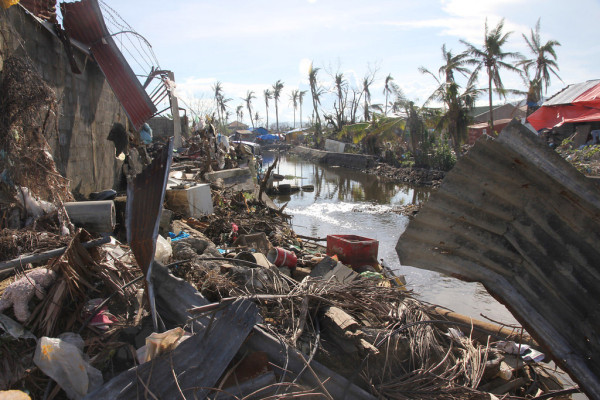30 October 2014 – Marking a milestone towards better disaster risk management in Asia and the Pacific, a United Nations-backed group of experts agreed this week on core principles for establishing a common basic range of disaster-related statistics.
The Expert Group on Disaster-related Statistics in Asia and the Pacific met for the first time from 27 to 29 October in Sendai, Japan, in a conference led by the UN Economic and Social Commission for Asia (ESCAP), the Tohoku University and the UN Development Programme (UNDP), in collaboration with the Government of Japan and the UN Office for Disaster Risk Reduction (UNISDR).*
“Frequency and severity of extreme weather events are expected to rise”
Speaking at the opening of the conference, Kilaparti Ramakrishna, Director of ESCAP’s East and North-East Asia Office (ESCAP-ENEA), underscored the significance of the group’s first meeting.
“With climate change, the frequency and severity of extreme weather events are expected to rise,” he said.
“This means, there is a tremendous need for better disaster risk management for society and the environment,” he added.
The Expert Group, which was established earlier this year by governments of the Asia-Pacific region, noted that a set of common standards will enable more precise risk assessment across the region and help governments in evidence-based policymaking which provides targeted support and infrastructure to manage disaster risks.
Almost, 1.2 million people in Asia and the Pacific have lost their lives to disasters during the past three decades, and efforts to manage disaster risks in the region – as well as in the rest of the world – have been hampered by a lack of timely, reliable and comparable statistics, mainly due to the absence of common standards, the group stressed.
“The success of the post-2015 sustainable development agenda highly depends on disaster risk reduction,” emphasized Shamika Sirimanne, Director of ESCAP’s Information and Communications Technology and Disaster Risk Reduction Division, who also spoke at the meeting. (*Source:UN Release).
Read also:
What Is Known and What Is Not Known about Impacts of Climate Change – Report
UN Summit: Tackling Climate Change Requires “All Hands on Deck”
Climate Summit: Extreme Weather Hits Asia, Europe… a Further Indication of the “New Normal”?
Beating Climate Change, Either Lead or Get Out of the Way
No ‘Plan B’ for Climate Action as There Is No ‘Planet B’
Economic Growth Possible Even While Tackling Climate Change — Report
‘We Are Running Out of Time’, Experts Warn as Climate Change Debate Heats Up
Climate Change Impacting Entire Planet, Raising Risk of Hunger, Floods, Conflict – UN Report
Impact of Climate Change Could Reverse Decades of Development in Africa ‘Majestic’
Greenland Provides First-hand Look at Impacts of Human-induced Climate Change
Bangladesh: the Crippling Cost of Climate Change Adaptation
Looming Problems: Not Enough Energy; Too Much of Climate Change
Clean Energy, Water Strategies to Halt ‘Runaway’ Climate Change – Experts
The ‘Future We Want’, Nowhere to Be Found in Rio+20
Demand for Life’s Essentials: 50% More Food, 40% More Energy and… 35% More Water
Food Inequality Equation: 1.5 Billion Obese; 925 Million Hungry
2014 Human Wrongs Watch






